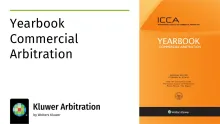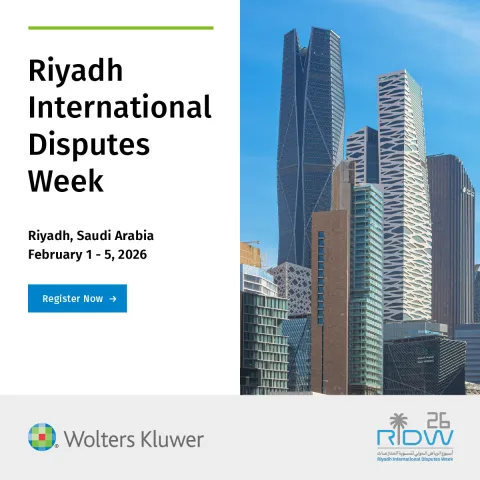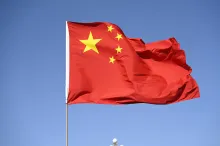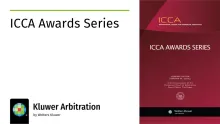From Fraud to Fairness: Devas v. Antrix as Catalyst for Enhanced Judicial Scrutiny in Enforcement of Arbitral Awards
September 16, 2025
This article delves into the Devas v. Antrix dispute, which presents a nuanced perspective on the recognition and enforcement of arbitral awards. It highlights the Indian court’s concept of a commercial relationship born of tainted means having pervasive and far-reaching consequences in arbitration, which led to the annulment of the ICC award (see here). Then it examines the Dutch court’s decision articulating the concept of “tainted annulment” (see here), where a foreign annulment judgment relying on factual findings from a prior domestic proceeding lacking due process was denied recognition. Further, drawing parallels between the two concepts, the article highlights the interconnectedness of these principles in shaping the enforcement of annulled awards.
For general background information on the Parties and the history of their dispute, see previous coverage on the Blog (here, here, here, and here).
The Pervasive Taint of Fraud: Examining the Annulment of the ICC Award in India
The protracted legal saga involving Devas Multimedia Private Limited (“Devas”) and Antrix Corporation Limited (“Antrix”) offers an illustration of the Indian judiciary’s profound examination of the fraudulent initiation of the commercial transaction between these two entities, ultimately concluding that the subsequent arbitral award was irredeemably tainted. The Supreme Court of India (“SCI”) confirmed the annulment of the ICC award by the division bench of the Delhi High Court (“DHC”) (see here). The DHC, in its annulment judgment, relied on the winding-up proceeding between the Parties. The winding-up proceeding before the National Company Law Tribunal (“NCLT”) was based on the alleged fraudulent activities surrounding the formation of Devas and the subsequent agreement with Antrix, the commercial arm of the Indian Space Research Organisation.
The SCI upheld the NCLT’s decision (see here), making critical findings that illuminated the deeply fraudulent nature of the commercial transaction from its inception. The findings highlighted that Devas was incorporated with the fraudulent intent to secure an advantageous contract with Antrix. The process was devoid of competitive bidding and marked by material misrepresentations to the government. Furthermore, the Court noted Devas’s demonstrable lack of genuine capacity or technology to fulfil its obligations, as well as its manipulation of official records and licenses that pertained to completely different services. These findings unequivocally established that the commercial engagement was fundamentally tainted by fraud. This led the judiciary to conclude that anything stemming from this relationship was infected with the “poison of fraud.”
Against this backdrop of established fraud, the DHC in the annulment proceeding invoked the fundamental principle that “fraud vitiates all solemn acts.” The court, in its judgment, articulated this principle with striking clarity: “If the seeds of the commercial relationship between Antrix and Devas were a product of fraud perpetrated by Devas, every part of the plant that grew out of those seeds, such as the Agreement, the disputes, arbitral awards, etc., [is] all infected with the poison of fraud.”
This analogy underscores a critical legal stance. A transaction born out of fraud cannot legitimately yield valid rights or obligations (see here and here). Any subsequent instrument, including an arbitral award, deriving from such a tainted origin is inherently flawed. The court emphasized that a “product of fraud is in conflict with the public policy of any country including India,” as the “basic notions of morality and justice are always in conflict with fraud” (see here). The court found that allowing Devas to benefit from an award rooted in such fraudulent actions would amount to perpetuating the fraud itself. Consequently, the DHC set aside the ICC Award.
The Hague Court of Appeal’s Decision: Overturning Tainted Indian Annulment
The Hague Court of Appeal’s (“HCA”) decision in the Devas-Antrix dispute provides clear insights into the principle of recognition of foreign judgments and arbitral awards in the Netherlands. Amongst the myriad of issues considered by the court, it meticulously assessed whether to recognize both the Indian liquidation ruling and the subsequent Indian annulment of the ICC award.
Non-Recognition of the Indian Liquidator
Since there is no treaty between the Netherlands and India governing the recognition of each other’s court judgments, the HCA applied the four conditions for recognition of foreign rulings derived from the Dutch Supreme Court’s Gazprombank judgment (see here). A key condition requires that the foreign judgment originated from judicial proceedings adhering to due process and sufficient safeguards. This assessment occurs under Dutch legal standards, including the requirements of a fair trial under Article 6 of the European Convention on Human Rights.
The HCA scrutinized the Indian liquidation proceedings against Devas. Antrix initiated these proceedings, citing fraud. Indian courts (NCLT, NCLAT, and SCI) ruled that Devas must be liquidated based on these fraud allegations. The appointed liquidator instructed Devas’s subsidiary, Devas Multimedia America, Inc. (“DMAI”), to cease its enforcement activities of the ICC Award.
The HCA identified several critical procedural deficiencies in the Indian liquidation process:
Absence of Document Production: The core fraud allegation by Antrix claimed that Devas withheld the agreement from Indian government agencies. Devas sought document production from Antrix to prove the government’s prior knowledge. The Indian courts denied this request. The HCA found this refusal disproportionately restricted Devas’s ability to present its arguments and concluded that this violated Devas’s right to a fair hearing.
Denial of Cross-Examination: Antrix also alleged that Devas fraudulently misrepresented its technical capabilities. Antrix submitted affidavits from its officials supporting this claim. Devas requested cross-examination of these officials. The Indian courts denied this request. The HCA held that this denial violated due process requirements. It noted that the SCI’s reasoning effectively shifted the burden of proof to Devas, requiring Devas to prove the non-existence of fraud.
Undisputed Facts Contradiction: The SCI’s liquidation ruling relied on “undisputed facts” derived from documents, which formed the basis of the fraud finding. The HCA found that Devas had extensively disputed these very facts in the Indian liquidation proceedings. The Indian court’s characterization of disputed facts as “undisputed” demonstrated an evident flaw and bias, incompatible with judicial impartiality.
The HCA determined that these cumulative defects demonstrated a lack of proper administration of justice and insufficient safeguards. Therefore, the HCA held that the Indian liquidation ruling could not be recognized in the Netherlands. Consequently, the liquidator’s appointment and authority derived from that ruling held no legal effect in the Netherlands. This meant that the liquidator’s instruction to DMAI to cease enforcement of the ICC Award was invalid under Dutch law.
Recognition of the Annulled Award
Despite the Indian annulment of the ICC Award, the HCA proceeded to assess its enforceability in the Netherlands. The court applied Article V(1)(e) of the New York Convention (“Convention”). This provision allows for refusal of enforcement if an award has been set aside by a competent authority in the country of origin. However, Dutch jurisprudence allows for exceptions to this rule in “special cases” (see here). Such a special case arises if the foreign annulment is based on grounds not generally acceptable by international standards or if the foreign annulment ruling itself cannot be recognized in the Netherlands.
The DHC had annulled the ICC Award primarily on the grounds of fraud and conflict with the public policy of India. Crucially, this annulment ruling explicitly adopted the fraud findings from the earlier Indian liquidation proceedings, applying the principle of res judicata (meaning the issue was already decided and binding).
Concerning recognition of the annulled award, the HCA’s reasoning was pivotal. It had concluded that the Indian liquidation ruling could not be recognized due to fundamental due process violations. This included the non-recognition of the finding that fraud had occurred in the liquidation proceedings. The Indian annulment ruling directly built upon and adopted this procedurally flawed fraud finding from the liquidation proceedings. The DHC treated this finding as conclusive based on res judicata, without an independent evaluation of the fraud allegations.
The HCA reasoned that recognizing the annulment ruling would effectively amount to accepting the fraud finding, which it had already determined was the product of a procedurally deficient process. Granting recognition in these circumstances would give legal effect in the Netherlands to a finding that violated fundamental principles of due process, albeit through the detour of the annulment. This was deemed unacceptable under Dutch law and contrary to Dutch public policy. Therefore, the HCA refused to recognize the annulment ruling. This decision cleared the path for DMAI to seek enforcement of the ICC Award in the Netherlands.
Drawing Parallels: Fraud at the Inception vs. Due Process in Annulment Proceeding
The Indian judicial stance posits that fraud at a contract’s inception taints all subsequent proceedings. This shares a significant conceptual parallel with the “tainted annulment” approach adopted by the Dutch court. Both operate on the fundamental premise that a severe foundational flaw at an earlier stage can invalidate or render unenforceable subsequent acts. The distinction in the nature of the “taint” is crucial. The Indian court annulled the award because the root commercial relationship was found to be fraudulent, whereas the Dutch court focused on whether the annulment process itself in India met international due process standards.
Despite these differing focal points, substantive fraud at a transaction’s root and procedural fairness in judicial review, both converge on a common ground: a commitment to prevent the judicial system from being used to legitimize outcomes derived from fundamentally flawed processes. The Indian courts apprehended that recognizing the ICC award would validate the underlying fraud. The Dutch court mirrored a similar concern that recognizing the annulment ruling would implicitly accept a fraud finding born from procedurally deficient processes.
The efficacy of international arbitration relies on the framework established by the Convention. It imposes two core obligations: first, to enforce agreements to arbitrate, and second, to recognize and enforce arbitral awards made under such agreements. The HCA’s recognition and granting leave to enforce the annulled award significantly limit the ability of States to use procedurally flawed domestic annulment proceedings as an effective shield against international arbitral obligations. This could lead to more rigorous judicial review of foreign annulment judgments globally, potentially increasing the enforceability of awards that have been set aside under questionable circumstances in their country of origin. It also raises the bar for States seeking to resist enforcement through domestic annulment, requiring them to demonstrate not only the fact of annulment but also its procedural integrity and adherence to international due process norms.
You may also like










